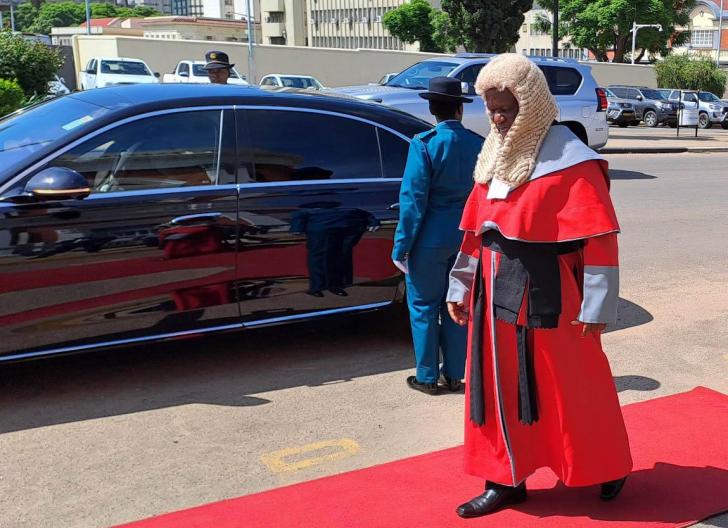News / National
Chief Justice bemoans court case backlog
26 Jun 2025 at 08:19hrs |
0 Views

Chief Justice Luke Malaba has called on court officials, including magistrates, to urgently address delays in concluding cases, warning that prolonged postponements undermine the credibility of Zimbabwe's justice delivery system. Speaking at the launch of the Judicial Service Commission's Fast Track Courts Training Programme in Harare yesterday, Malaba described the current backlog of unresolved cases as unsustainable and frustrating to the public.
"Stop postponing cases for weeks, months and years. That is not justice," Malaba said emphatically. "Justice delayed is justice denied."
The training event brought together magistrates, prosecutors, investigators, and other court personnel tasked with streamlining judicial processes. Malaba stressed that all institutions within the criminal justice system must work cohesively with a shared commitment to timely justice delivery.
"Where there is injustice, there is pain. And when we don't deliver justice, we are prolonging the pain of the people. The sweetest justice is speedy justice. That is where the fast-track concept came from," he explained.
Highlighting the threat posed by abuse of office and corruption among court officials, Malaba warned that such misconduct erodes public trust, leaving the entire justice system vulnerable. "Once the public loses confidence in the justice system, all of us become vulnerable. Nobody will recognise us."
Malaba underscored that fast-track courts are designed as a mechanism to rebuild public trust by ensuring justice is dispensed within reasonable timeframes.
Prosecutor-General Loice Matanda-Moyo, drawing from her experience as both a former judge and career prosecutor, reinforced the necessity of ethical conduct in the fast-track court system. "Every case must come to court trial-ready. Fast track does not mean shortcut; ethical practice is non-negotiable," she said.
Matanda-Moyo urged court officials to act as ambassadors of reform and accountability within their agencies, emphasizing that the future of Zimbabwe's justice system depends on their dedication to upholding integrity and efficiency.
"Stop postponing cases for weeks, months and years. That is not justice," Malaba said emphatically. "Justice delayed is justice denied."
The training event brought together magistrates, prosecutors, investigators, and other court personnel tasked with streamlining judicial processes. Malaba stressed that all institutions within the criminal justice system must work cohesively with a shared commitment to timely justice delivery.
"Where there is injustice, there is pain. And when we don't deliver justice, we are prolonging the pain of the people. The sweetest justice is speedy justice. That is where the fast-track concept came from," he explained.
Highlighting the threat posed by abuse of office and corruption among court officials, Malaba warned that such misconduct erodes public trust, leaving the entire justice system vulnerable. "Once the public loses confidence in the justice system, all of us become vulnerable. Nobody will recognise us."
Malaba underscored that fast-track courts are designed as a mechanism to rebuild public trust by ensuring justice is dispensed within reasonable timeframes.
Prosecutor-General Loice Matanda-Moyo, drawing from her experience as both a former judge and career prosecutor, reinforced the necessity of ethical conduct in the fast-track court system. "Every case must come to court trial-ready. Fast track does not mean shortcut; ethical practice is non-negotiable," she said.
Matanda-Moyo urged court officials to act as ambassadors of reform and accountability within their agencies, emphasizing that the future of Zimbabwe's justice system depends on their dedication to upholding integrity and efficiency.
Source - Newsday
Join the discussion
Loading comments…
































